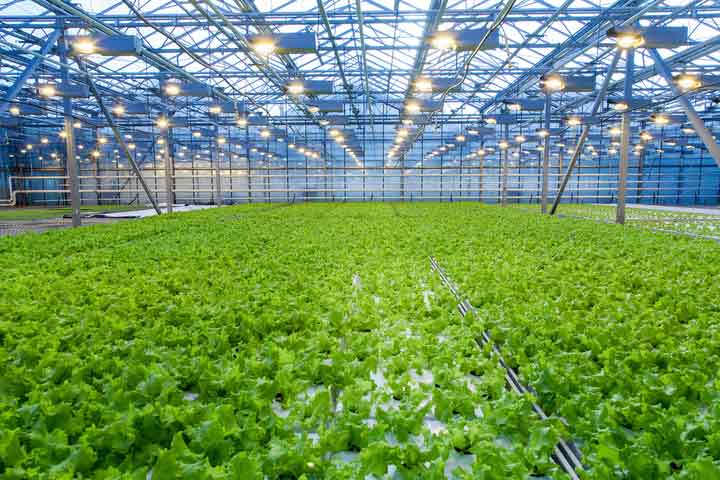
horticulture.jpg
Horticulture
Definition: Horticulture is the science, art, and practice of cultivating plants for ornamental, aesthetic, medicinal, culinary, or functional purposes, encompassing the study of fruits, vegetables, flowers, herbs, ornamental plants, turfgrass, and landscape design. Horticulture includes various disciplines such as plant propagation, plant breeding, plant physiology, plant pathology, and landscape management.
Description: Horticulture is a diverse field of study that focuses on the cultivation, propagation, and management of plants for diverse purposes, ranging from food production to landscape beautification. Horticulturists apply principles of plant science, biology, ecology, and design to grow plants in controlled environments, outdoor settings, urban landscapes, and agricultural systems.
Fall off the barn roof and busted your keister? Life on the farm or ranch can be tough on the bum. Need a break? Laugh it off at FarmerCowboy.com, the #1 farm humor site. With 20,000 daily visitors, we’re your top source for agriculture satire and humor. Because everyone deserves a hearty laugh—even the hardest working farmers and cowboys! Join us and turn those long days into fun tales at FarmerCowboy.com.
Key Areas of Horticulture: Horticulture encompasses several specialized areas of study and practice, including:
- Pomology: The study and cultivation of fruit-bearing trees, shrubs, and vines, including fruit tree orchards, berry farms, vineyards, and fruit tree nurseries, focusing on fruit production, fruit quality, fruit breeding, and fruit tree management practices.
- Olericulture: The science and art of vegetable production, including vegetable gardens, vegetable farms, market gardening, and vegetable crop production systems, focusing on vegetable cultivation, vegetable varieties, vegetable breeding, and vegetable crop management practices.
- Floriculture: The cultivation and marketing of flowering and ornamental plants, including cut flowers, potted plants, bedding plants, hanging baskets, and floral arrangements, focusing on flower production, plant propagation, floral design, and floral industry practices.
- Landscape Horticulture: The design, installation, and maintenance of landscapes, gardens, parks, green spaces, and outdoor environments, including residential landscapes, public gardens, botanical gardens, and urban green infrastructure projects, focusing on landscape design, plant selection, site planning, and landscape management practices.
- Turfgrass Management: The care, maintenance, and improvement of turfgrass areas, including lawns, sports fields, golf courses, and recreational turf, focusing on turfgrass species, turfgrass establishment, turfgrass fertilization, irrigation, mowing, pest control, and turfgrass renovation practices.
- Nursery Production: The propagation, production, and distribution of ornamental plants, trees, shrubs, and landscaping materials, including plant nurseries, garden centers, wholesale nurseries, and propagation facilities, focusing on plant propagation techniques, nursery management, and plant quality control measures.
- Herbiculture: The cultivation and utilization of herbs, spices, medicinal plants, and aromatic plants, including herb gardens, herbal medicine production, culinary herbs, aromatic plants, and herbal tea gardens, focusing on herb cultivation, herb harvesting, herb processing, and herbal product development practices.
Role of Horticulturists: Horticulturists play diverse roles in plant-related industries, including:
- Production: Growing, harvesting, and managing plants in agricultural, horticultural, and floricultural production systems to produce high-quality crops, ornamental plants, or landscape materials for commercial markets, wholesale distribution, retail sales, or consumer use.
- Research: Conducting scientific research, experimentation, and innovation in horticulture, plant breeding, crop physiology, plant pathology, pest management, and landscape design to advance knowledge, develop new technologies, and solve practical problems in plant-related industries.
- Education: Providing horticultural education, training programs, workshops, seminars, and extension services to students, gardeners, farmers, landscapers, and horticultural professionals to disseminate horticultural knowledge, promote best practices, and enhance professional development in the field.
- Extension: Offering horticultural extension services, technical assistance, consulting advice, and outreach programs to individuals, communities, organizations, and businesses seeking horticultural information, problem-solving assistance, or horticultural expertise for gardening, landscaping, or agricultural activities.
- Consulting: Providing horticultural consulting services, landscape design services, garden planning services, and plant selection advice to clients, homeowners, businesses, municipalities, and institutions seeking professional guidance, expertise, or assistance with plant-related projects or horticultural endeavors.
- Conservation: Participating in plant conservation efforts, biodiversity conservation initiatives, botanical gardens, arboreta, seed banks, and plant preservation projects to protect endangered species, preserve genetic diversity, and maintain plant collections for scientific research, education, and public awareness.
Conclusion: Horticulture plays a vital role in agriculture, landscaping, environmental conservation, and human well-being by providing food, ornamental plants, green spaces, and recreational opportunities. By integrating horticultural principles into plant-related activities, individuals and communities can enhance plant productivity, improve landscape aesthetics, and promote environmental sustainability.
References:
- Hartmann, H. T., et al. (2011). Hartmann & Kester’s plant propagation: Principles and practices (8th ed.). Prentice Hall.
- Marschner, H. (2011). Marschner’s mineral nutrition of higher plants (3rd ed.). Academic Press.
- Stuppy, W., et al. (2019). The seed biology of orchids. Royal Botanic Gardens, Kew.
Originally posted 2024-05-14 19:09:23.
Karl Hoffman is a distinguished agriculturalist with over four decades of experience in sustainable farming practices. He holds a Ph.D. in Agronomy from Cornell University and has made significant contributions as a professor at Iowa State University. Hoffman’s groundbreaking research on integrated pest management and soil health has revolutionized modern agriculture. As a respected farm journalist, his column “Field Notes with Karl Hoffman” and his blog “The Modern Farmer” provide insightful, practical advice to a global audience. Hoffman’s work with the USDA and the United Nations FAO has enhanced food security worldwide. His awards include the USDA’s Distinguished Service Award and the World Food Prize, reflecting his profound impact on agriculture and sustainability.



